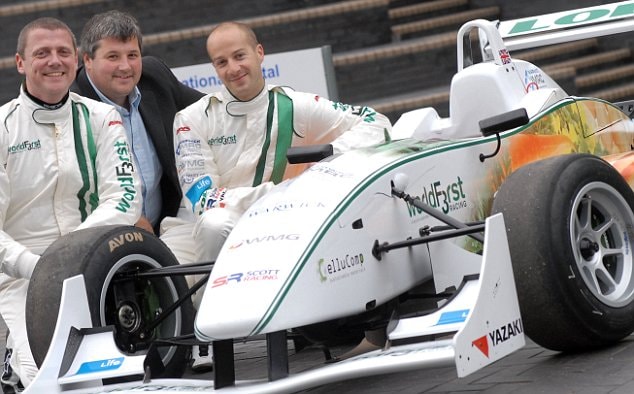If you had any doubts it exists when we first presented the news and photos of the WorldFirst project (a chocolate powered racing car), find out the British researchers behind the project unveiled it on Tuesday.
It’s real and it can reach up to 145mph. The first eco-friendly racing car, by the name of WorldFirst, is made out of environmentally sustainable components and was developed by scientists from the University of Warwick.
“It’s been very exciting working on the project and important for our team to develop a working example of a truly ‘Green’ motor racing car,” said, James Meredith, the project manager.
'"The WorldFirst project expels the myth that performance needs to be compromised when developing the sustainable motor vehicles of the future,” Meredith added.
Dr Kerry Kirwan from the research team said plants formed the mainstay of the car's bodywork. “This includes a race specification steering wheel derived from carrots and other root vegetables, a flax fibre and soybean oil foam racing seat, plant oil based lubricants and a biodiesel engine configured to run on fuel derived from waste chocolate and vegetable oil,” he said.
The developers argued their decision to use sustainable technologies for their innovative Formula 3 racing car by the high costs of nowadays motor racing - which is making sponsors having second thoughts about the commercial value of this domain.
That is why WorldFirst came with a solution to maximize the returns on investment in that domain, therefore bring its own contribution to secure the future of motor sport competitions. The project also provides a potential support for the motor industry, in order for it to become more environmentally friendly and sustainable, while avoiding any compromise in performance.
“As original equipment manufacturers focus on decreasing engine emissions, to meet future CO2, the WorldFirst project proves that if you are going to wholeheartedly embrace the ‘green is great’ ethos you have to broaden your vision and have a strategy that stretches throughout the chain from the raw materials to the final disposal of the car. The project clearly demonstrates that automotive environmentalism can and should be about the whole package,” said dr Steve Maggs.
It’s real and it can reach up to 145mph. The first eco-friendly racing car, by the name of WorldFirst, is made out of environmentally sustainable components and was developed by scientists from the University of Warwick.
“It’s been very exciting working on the project and important for our team to develop a working example of a truly ‘Green’ motor racing car,” said, James Meredith, the project manager.
'"The WorldFirst project expels the myth that performance needs to be compromised when developing the sustainable motor vehicles of the future,” Meredith added.
Dr Kerry Kirwan from the research team said plants formed the mainstay of the car's bodywork. “This includes a race specification steering wheel derived from carrots and other root vegetables, a flax fibre and soybean oil foam racing seat, plant oil based lubricants and a biodiesel engine configured to run on fuel derived from waste chocolate and vegetable oil,” he said.
The developers argued their decision to use sustainable technologies for their innovative Formula 3 racing car by the high costs of nowadays motor racing - which is making sponsors having second thoughts about the commercial value of this domain.
That is why WorldFirst came with a solution to maximize the returns on investment in that domain, therefore bring its own contribution to secure the future of motor sport competitions. The project also provides a potential support for the motor industry, in order for it to become more environmentally friendly and sustainable, while avoiding any compromise in performance.
“As original equipment manufacturers focus on decreasing engine emissions, to meet future CO2, the WorldFirst project proves that if you are going to wholeheartedly embrace the ‘green is great’ ethos you have to broaden your vision and have a strategy that stretches throughout the chain from the raw materials to the final disposal of the car. The project clearly demonstrates that automotive environmentalism can and should be about the whole package,” said dr Steve Maggs.





